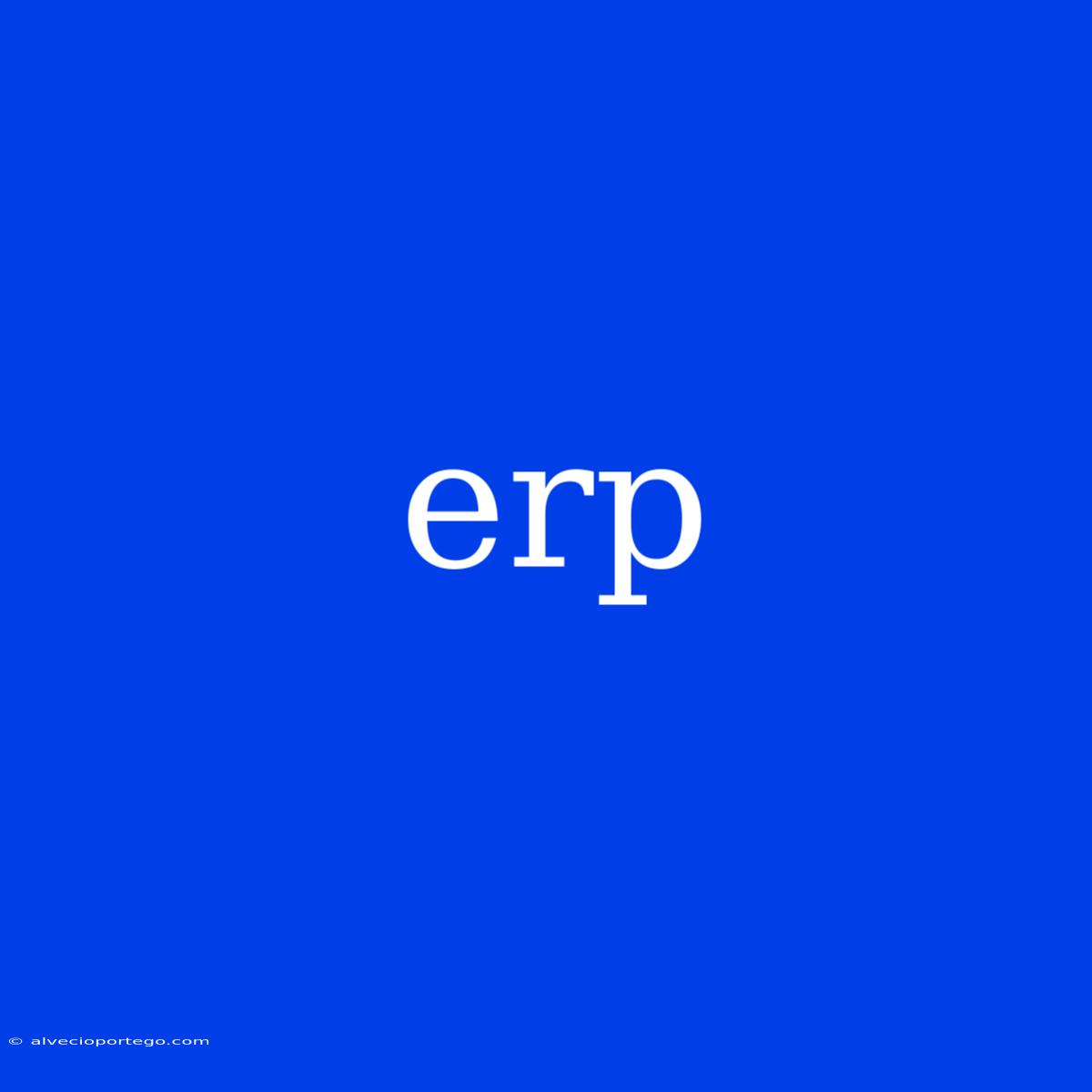ERP: The Backbone of Modern Business Operations
Enterprise Resource Planning (ERP) systems have become an indispensable tool for businesses of all sizes across various industries. Serving as a centralized hub for managing critical business processes, ERP systems integrate data from different departments, enabling improved efficiency, visibility, and decision-making.
What is ERP?
ERP stands for Enterprise Resource Planning. It is a software suite that integrates various business functions and processes into a single system. This integrated approach helps companies automate tasks, streamline workflows, and eliminate data silos, ultimately leading to better operational efficiency and cost savings.
Core Functions of ERP Systems:
- Financial Management: Track financial transactions, generate reports, manage budgets, and control expenses.
- Human Resources: Manage employee information, payroll, benefits, recruitment, and training.
- Supply Chain Management: Optimize inventory levels, manage procurement, track shipments, and ensure timely delivery.
- Production and Manufacturing: Plan production schedules, track materials, manage quality control, and optimize resource utilization.
- Customer Relationship Management (CRM): Manage customer interactions, track sales opportunities, and improve customer satisfaction.
Benefits of Implementing ERP:
- Improved Efficiency: Streamline workflows, automate tasks, and reduce manual errors.
- Enhanced Visibility: Gain real-time insights into business operations and data across departments.
- Better Decision-Making: Access accurate and timely data for informed strategic decision-making.
- Reduced Costs: Optimize resource utilization, minimize waste, and streamline processes.
- Increased Agility: Adapt to changing market conditions and customer demands quickly and efficiently.
- Improved Compliance: Ensure compliance with regulations and industry standards.
Types of ERP Systems:
- On-Premise ERP: Installed and hosted on the company's servers.
- Cloud-Based ERP: Accessed via the internet and hosted on a third-party provider's servers.
Choosing the Right ERP System:
Selecting the right ERP system is crucial for successful implementation. Factors to consider include:
- Business Size and Complexity: Choose a system that caters to your specific needs and scalability.
- Industry-Specific Requirements: Look for industry-specific functionalities and compliance features.
- Budget and Implementation Costs: Consider the cost of software licenses, implementation services, and ongoing maintenance.
- Vendor Reputation and Support: Choose a reputable vendor with a strong track record and reliable customer support.
Conclusion:
ERP systems have revolutionized how businesses operate, offering significant benefits in efficiency, visibility, and decision-making. By carefully considering your specific needs and evaluating available options, businesses can leverage the power of ERP to achieve their strategic goals and gain a competitive advantage in today's dynamic marketplace.

